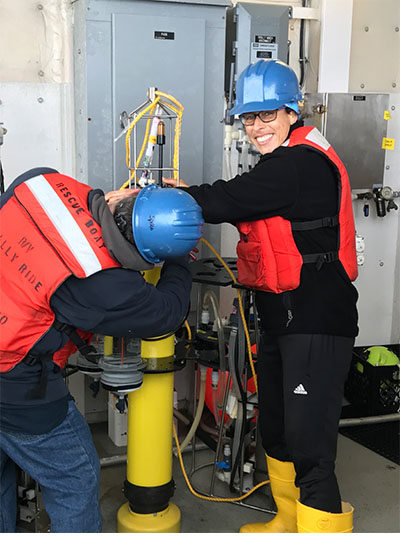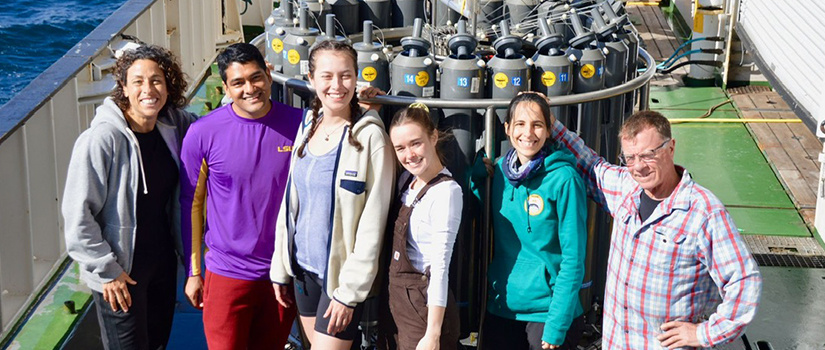Thinking of national defense in the United States, you might imagine missiles and fighter jets. Turning your mind to exploration, you might think of moon landings and rockets to Mars.
The ocean might not cross your mind. But it's a central part of the U.S. government's focus for defense and scientific research. Now, a University of South Carolina professor will help direct policy for oceanic research.

I am 100 percent committed to research, but I also recognize that we need to broaden the individuals coming to the table to think about the questions from different backgrounds or we will stagnate.
Claudia Benitez-Nelson, a distinguished professor in the College of Arts and Sciences’ School of the Earth, Ocean and the Environment, has been named to the Ocean Research Advisory Panel (ORAP). This advisory panel supports the White House’s Ocean Policy Committee’s national priorities: Maximizing environmental, economic and social benefits of the oceans, developing an ocean-based, federally coordinated climate plan and strengthening ocean science, technology and innovation to address societal needs.
“People know that NASA does space, but over 15 different federal agencies, including NASA, have their hands in the oceanographic research pie. Part of our mandate is to look at how these agencies can work together,” says Benitez-Nelson, who also chairs the Ocean Studies Board of the National Academics of Sciences, Engineering and Medicine.
For example, marine carbon dioxide removal crosses multiple research institutions and agencies, including the National Oceanic and Atmospheric Administration and the National Science Foundation. The panel makes recommendations on how to address large-scale questions within the parameters of the agencies’ missions.
“We are figuring out a way for the agencies to work together, thinking creatively given the structural limitations and working beyond the administrative issues that can be overwhelming,” says Benitez-Nelson.
With over two decades of research scholarship under her belt, Benitez-Nelson offers an authoritative voice on ocean processes to the top advisory panel. She joins 17 other individuals who represent a balance of academic, scientific and geographic interests. During her three-year term, Benitez-Nelson will bring her interdisciplinary expertise to look at past and present climate and chemistry of the oceans.
In addition to providing input on environmental policies and procedures, the panel works on projects to involve a broad spectrum of people in the ocean sciences and related fields. This work is something that Benitez-Nelson had advocated for throughout her career.
“I am 100 percent committed to research, but I also recognize that we need to broaden the individuals coming to the table to think about the questions from different backgrounds or we will stagnate.”

Learn more about the research
Ocean experts appointed to federal Ocean Research Advisory Panel




